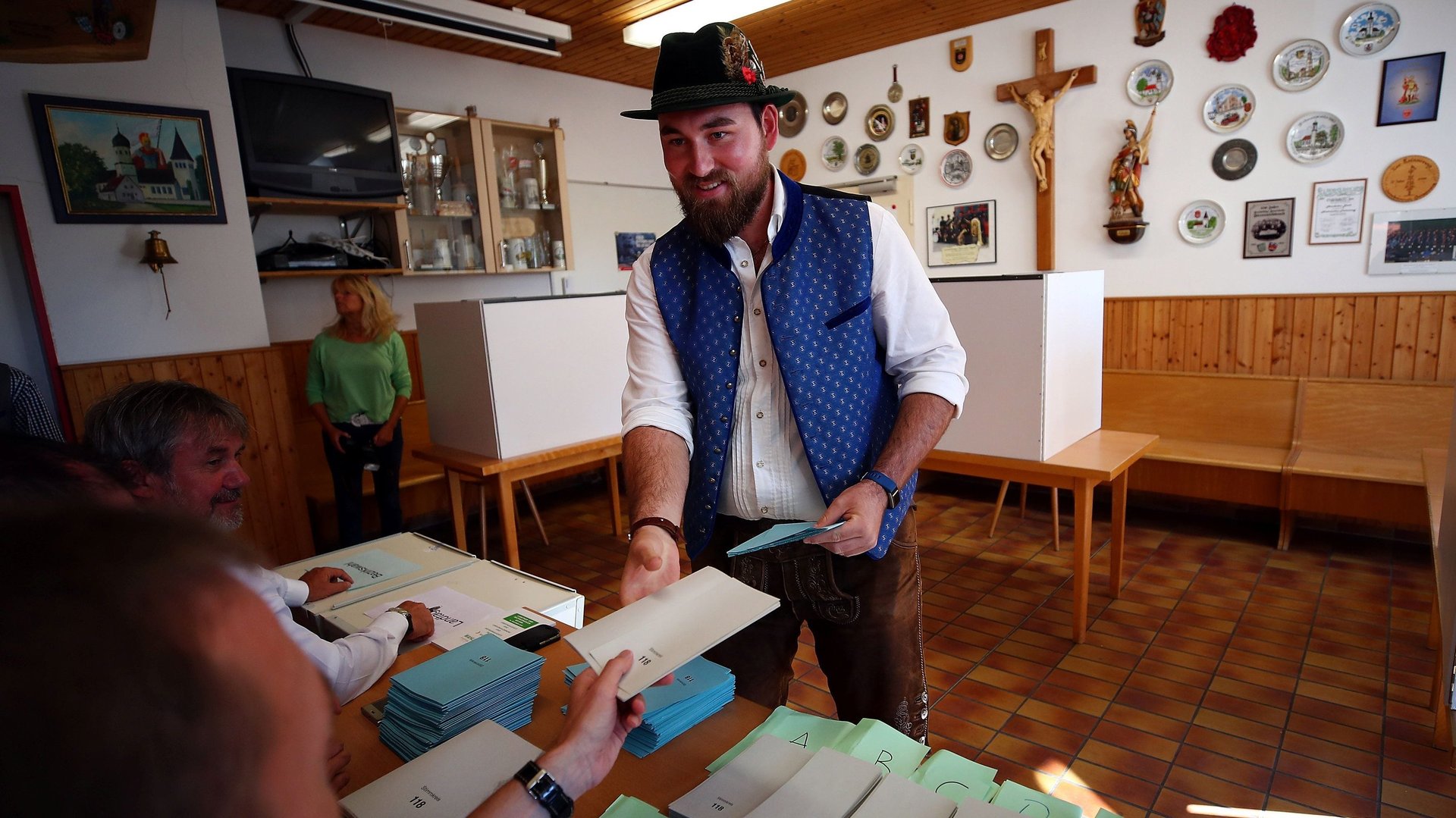Bavarian voters punish Merkel’s allies by splintering to the left and right
With the rise of nationalist, populist parties across much of Europe, taking a hard line on immigration has proved to be a winning strategy for many politicians seeking power. But that tactic backfired badly on Germany’s Christian Social Union (CSU) this weekend.


With the rise of nationalist, populist parties across much of Europe, taking a hard line on immigration has proved to be a winning strategy for many politicians seeking power. But that tactic backfired badly on Germany’s Christian Social Union (CSU) this weekend.
In the Bavarian state election on Sunday (Oct. 14), the CSU suffered what’s described as (link in German) a “disaster” and a “debacle,” winning just 37% of the vote—down from 48% four years ago. Considering the CSU has ruled the powerful and prosperous state mainly single-handedly for the past 60 years, this is a bitter defeat.
Fearing losses to the far-right Alternative for Germany (AfD), the CSU had sharpened its rhetoric against migrants in a mission to shore up support; around 1 million German voters deserted the CSU’s sister party, Angela Merkel’s Christian Democratic Party, for the AfD in last year’s general election.
But in Bavaria the big winner of the night was the Greens—a party that champions the environment, refugee rights, social justice, and deeper European integration. It scooped up 17.5% of the vote, becoming the second-largest party in the state. In the end, according to exit polls, the CSU lost slightly more voters to the Greens than it did to the AfD. For its part, the AfD won just over 10% of votes, and will enter the Bavarian parliament for the first time. The center-left Social Democrats (SDP), meanwhile, were humiliated with less than 10% of the vote.
“The CSU’s hard line on migration seems to have proved counterproductive,” said Pepijn Bergsen of the Economist Intelligence Unit. “Instead of winning back the voters it lost to the AfD in recent years… it seems to be turning off more moderate voters.” He noted that the Greens’s “anti-anti-migration position” appeals to voters fed up with the tone of the refugee debate in Germany.
Why it matters for Merkel
Wealthy Bavaria is Germany’s largest state, accounting for nearly 20% of the country’s GDP. It is home to corporate giants like Siemens, Allianz, and BMW. Its state elections were regarded as a referendum on Merkel’s national coalition, and a snapshot of the current state of German politics. By hitting the reset button on Sunday, voters sent a clear message to Merkel’s coalition of the center-right and center-left that they’re losing faith in traditional, mainstream parties. The CSU must now form a coalition in Bavaria with either the Greens or the Free Voters, a regional protest party, within the next four weeks.
Last night’s drubbing could also spell the end for CSU party chief, interior minster Horst Seehofer. Seehofer has been openly antagonizing Merkel since the beginning of her fourth term: He defied her by slamming her refugee policies and threatened to resign and bring down her government. His platform to make trouble for Merkel is now weakened, although that’s cold comfort for the chancellor given the beating that her coalition partners, the CSU and SPD, took in the vote.